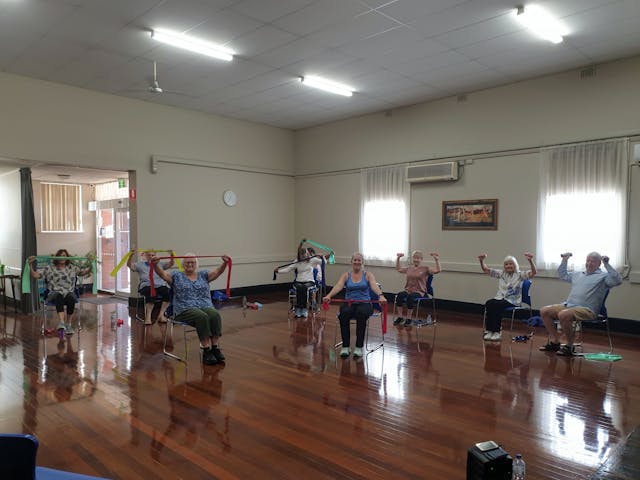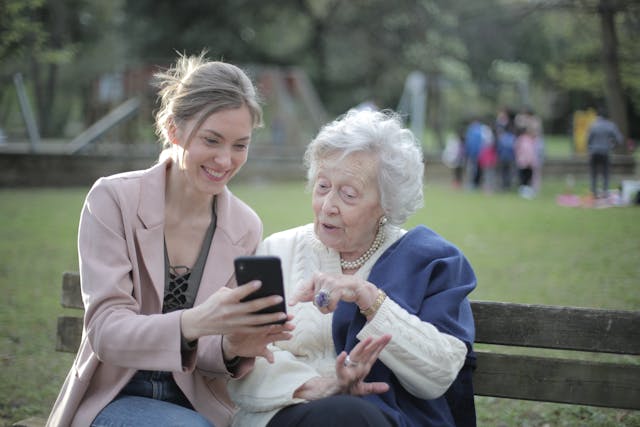- Regular contact is vital to maintaining social relationships, as seniors can schedule regular calls and visits to stay connected.
- Reciprocating support is essential in healthy relationships, as seniors can offer their wisdom and experience while receiving support from younger generations.
- Seniors should remain open to new relationships, finding joy and purpose in connecting with new people.
- Staying social in older age requires the support of families, communities, and service providers to ensure a fulfilling and enjoyable social life.
Seniors often find themselves facing the challenges of social isolation, which can have significant impacts on mental, emotional, and physical well-being. While many enjoy the relaxation and opportunities for self-reflection that retirement offers, staying socially connected remains a crucial aspect of aging gracefully. This comprehensive guide explores the various strategies and services that can help older adults maintain robust social lives, enhancing their quality of life and overall health.
The Importance of Social Connections in Later Life
The Benefits of Staying Active

Research consistently reinforces the idea that an active social life is enjoyable and a key component of healthy aging. Seniors who engage in regular social activities often report a greater sense of happiness and well-being. Socializing can also reduce feelings of loneliness, lower rates of depression, and even contribute to a longer lifespan. More tangibly, social interactions provide opportunities for cognitive stimulation and emotional support during times of change or transition.
Recognizing the Hurdles
While the benefits are clear, staying social can be challenging as physical abilities change and the circle of friends might diminish. The loss of a spouse and other close companions, in particular, may lead to feelings of loneliness and isolation. Recognizing these potential hurdles can empower seniors and their support networks to proactively address these issues.
Effective Strategies for Staying Socially Engaged
1. Investing in Home Health Care Services
Home health care services offer more than just medical assistance; they can be a lifeline for companionship and social interaction. Personal care aides who develop a rapport with their clients provide not only vital assistance but also a listening ear and friendly face. By utilizing Medicare home health care benefits, seniors can access a range of services, from physical therapy to skilled nursing, ultimately promoting their ability to stay engaged in their community.
Eligibility and Coverage
Medicare can cover home health services like part-time skilled nursing care, physical therapy, and various other types of home health support. Specific criteria determine eligibility, and the extent of coverage varies based on the care plan created by the senior’s doctor. Understanding these details is essential for seniors looking to benefit from home health care services.
2. Join Senior Centers and Community Groups
Senior centers are invaluable hubs that offer a plethora of activities, from exercise classes to card tournaments. These centers play a critical role in fostering socialization among older adults, allowing them to make new friends and partake in activities they enjoy. Similarly, joining community groups with shared interests can lead to the formation of lasting and meaningful connections.
Harnessing the Power of Gatherings
Social connections can flourish at these centers and gatherings through everyday conversations, group activities, and special events. By experiencing the camaraderie these settings offer, seniors are often inspired to remain active despite any physical limitations.
3. Volunteering and Purpose-Driven Activities
Volunteering is a two-fold activity that gives purpose and fosters social connections. Seniors can find great satisfaction in offering their skills and time to causes they believe in while engaging with like-minded individuals. Organizations looking for volunteers often provide roles that accommodate various levels of mobility and interests.
Exploring Opportunities
From reading to children in local schools to planting trees in community parks, the opportunities for purposeful engagement are as vast as they are varied. Volunteering maintains social networks and instills a sense of fulfillment and achievement, which are vital components of a flourishing and pleasant life.
4. Embracing Technology to Stay Connected
Technology offers unprecedented means to bridge distances and maintain relationships in the modern world. Elderly individuals can use social media platforms, video calling services, and online games to keep in touch with loved ones. Learning these tools might seem daunting, but many organizations offer classes tailored to older adults, providing the necessary skills to stay digitally connected.
Navigating the Digital Realm
By embracing technology, seniors can participate in family events, reunite with long-lost friends, and join online communities that share their interests. This digital engagement offers a sense of belonging and ensures that physical distance does not lead to social estrangement.
5. Participating in Structured Group Activities or Classes

Group activities and classes for seniors, such as painting workshops or exercise groups, offer the dual benefits of skill acquisition and social interaction. Participating in these sessions fosters a sense of achievement and provides a platform for seniors to engage with others who share their enthusiasm for the activity.
Group Fitness for the Mind and Body
Exercise classes tailored for older adults are particularly effective in maintaining physical health and nurturing social ties. Regular attendance at these activities not only contributes to a healthier lifestyle but also leads to developing a supportive and motivating network of peers.
Building a Sustainable Social Network
- Maintaining Regular Contact: Consistency is critical to nurturing social relationships. By scheduling regular calls or visits with friends and family, seniors can foster an ongoing connection that transcends the occasional get-together.
- Reciprocating Support: In any healthy relationship, support should flow in both directions. Seniors can offer their unique wisdom and experience to younger generations, creating a reciprocal dynamic that benefits both parties and reinforces the strength of their social ties.
- Being Open to New Relationships: Life is full of surprises, and one of the greatest joys in staying social is the potential for new friendships and experiences. Seniors should remain open to connecting with new people through chance encounters or organized events.
Final Thoughts
The art of staying social in your golden years is a testament to the human spirit’s need for interaction and connection. By exploring the services and strategies outlined in this guide, seniors can enjoy a vibrant social life that enhances their well-being and joy. Families, communities, and service providers all play a critical role in supporting and encouraging the social lives of older adults, ensuring that every stage of life is filled with the love and companionship we all cherish.




